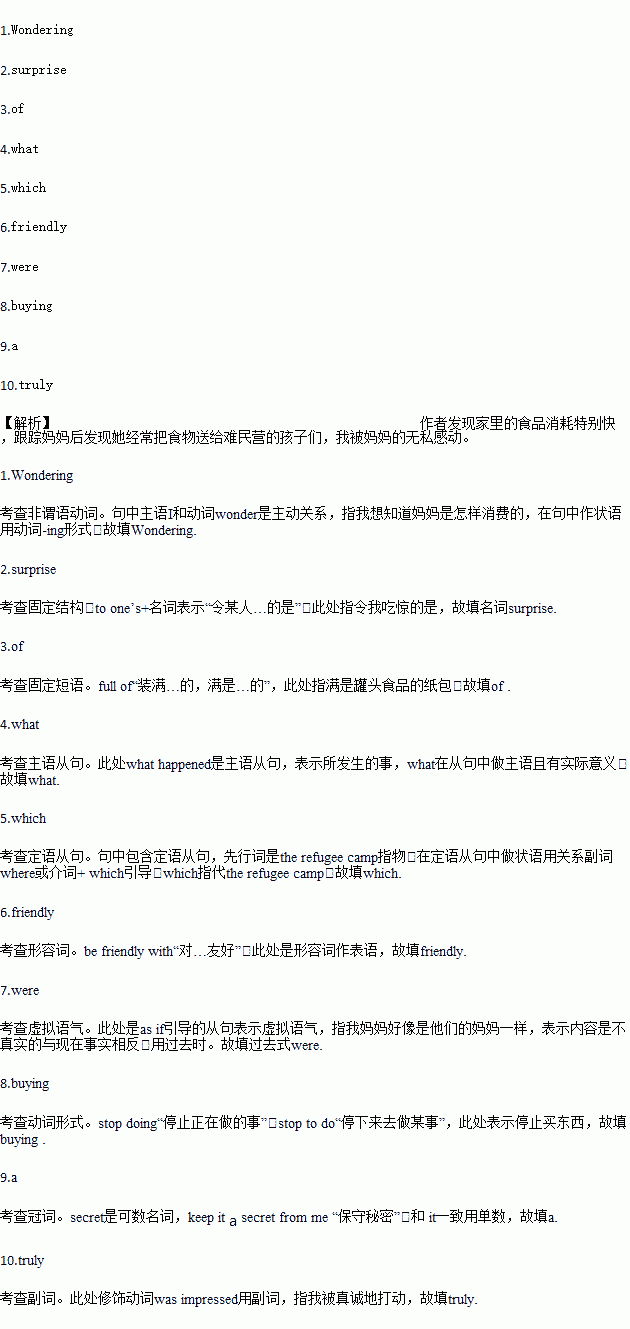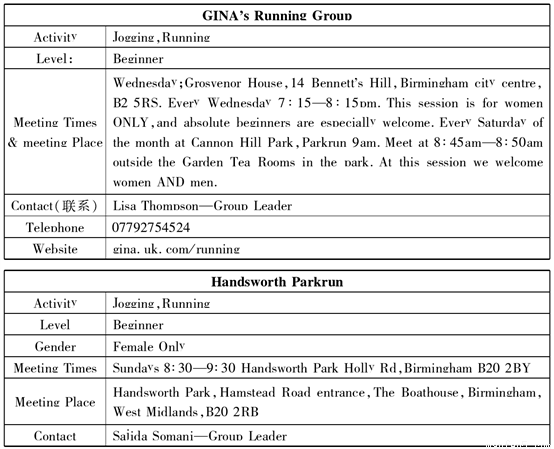题目内容
Bags of Love
Last year, I was assigned to work at an office near my mother’s house, so I stayed with her for a month. During that time, I helped out with the housework and contributed to the groceries.
After less than a week, I started noticing that the groceries were running out pretty quickly — we were always suddenly out of something. 1.(wonder) how my mum could consume them so quickly, I began observing her daily routine for two weeks. To my2.(surprise), I found that she would pack a paper bag full 3. canned goods and head out every morning at about nine. Eventually, I decided to follow her and 4. happened simply amazed me. She was taking the food to the refugee camp, in 5. she distributed it to children.
I asked around and found out that my mum was very well known in the area. The kids were very 6.(friend) with her and even looked up to her as if she 7.(be) their own mother. Then it hit me —why would she not want to tell me about what she was dong? Was she worried about how I would react or that I would stop 8.(buy) the groceries if I found out?
When she got home, I told her about my discovery. Before she could react, I gave her a big hug and told her she didn’t need to keep it 9. secret from me. She told me that some of the children lived with an older lady in a shelter while others slept on the streets. For years, my mum has been helping out by giving them whatever food she could spare. I was 10.(true) impressed by how selfless she was.
 高中必刷题系列答案
高中必刷题系列答案


 C. sadness D. hardship
C. sadness D. hardship